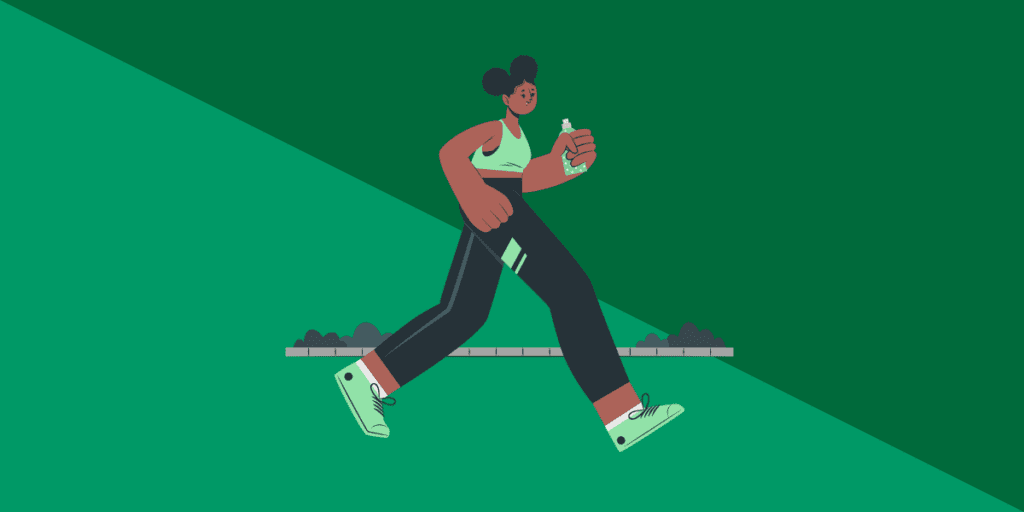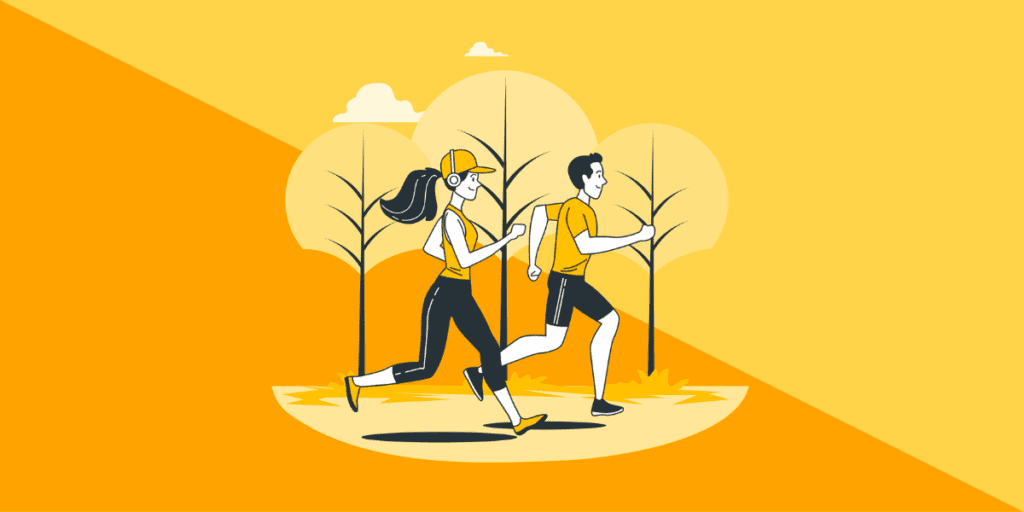I got into exercising a bit more a few years ago. While I’ve now become a lot more sedentary compared to my fitness peak, I still maintain a fairly active lifestyle, if I do say so myself.
Restarting my exam preparation threatened to have a huge impact on my exercise levels, even though I’ve always known that exercise and exam performance are positively linked.
I decided to do some proper research two key aspects:
- how and why exercise benefits your exam performance, and
- experiment with ways to painlessly introduce exercise into a busy person’s lifestyle
Read on to see the results of my research!
1. Exercise makes you smarter

It has long been known and proven that exercise increases brain performance. Increased physical activity raises your heart rate and increases the flow of oxygen-rich blood throughout your body, including your brain.
It has been showed that moderate intensity exercise is related to increased performance in working memory and cognitive flexibility, whereas high-intensity exercise improves the speed of information processing (Chang and Etnier, 2009).
Over the years, research has only added more evidence to show that getting active just makes you even smarter.
2. Exercise reduces stress and calms you down

Exercising regularly stimulates more new, active brain cells to be created.
Additionally, according to research done by Princeton University with mice, it also increases ‘nanny neurotransmitters’ that brings your average stress levels down.
Not only that, but Princeton scientists also discovered that mice that exercised regularly dealt better with stressful environments and shook off the anxiety levels faster after stressful events.
So exercise makes you smarter, and also makes you a cool and calm cucumber. Sounds good so far? Read on.
3. Exercise makes you happy

Our body naturally produces endorphin, our own natural euphoria inducing, pain-killing, non-addicting drug.
When you exercise, you also stimulate your body to produce endorphins, improving your mood, and literally getting you (a little) high.
Researchers have found that heavy weights or training that incorporates sprinting or other anaerobic exertion significantly increases endorphin levels in your body.
Smarter, calmer, and feeling great.
But wait, there’s more.
4. Exercise improves memory and focus

Exercising consistently, and right before an exam can improve your performance too.
A study done by Dartmouth College, published in Neuroscience, showed that for those who exercising regularly, exercising right before performing a mental task significantly boosts your performance. So one-off exercises right before exams don’t work.
Studies also showed that just 20 minutes of walking before a test improved students’ scores — whether or not they were fit when they started.
So let’s get that early workouts going consistently!
So we’ve established that exercise makes you smarter, calmer, happier, and more focused. But how do you realistically get exercise into your daily life?
How to exercise more effortlessly now, without a gym

Of course, with our busy schedules, it can be difficult to motivate yourself to go to the gym once or several times a week. You don’t need another guide on how to gym right (and I don’t think I’m all that qualified to give that advice either).
However, I do have a list of tips below that WILL make a big difference to your daily activity levels, and are implementable right now.
- Identify opportunities in your daily commute where you can walk a little more. Get off the train one stop earlier and walk the rest of the way. If you drive, try parking your car in a further car park.
- Take the stairs rather than the lift. My daily office life involves going between one to four floors, and I usually take the stairs for all of them. It’s usually faster and gets you fit!
- Walk instead of driving or taking public transport when running errands, going out to dinner and so on. As a rule, if you can walk to where you’re going in 15 minutes or less, you should walk!
- Start tracking your steps. A fitness tracker (or simply a smartphone app) will be able to show you just how variable your activity levels are depending on simple lifestyle choices such as the ones mentioned above.
- If you have some free time, instead of watching a movie on your TV, put on your shoes and go for a hike. I’ve taken quite a few walks around my neighbourhood and discovered many hidden paths, restaurants and parks that I would have never noticed otherwise. It’s a great pastime to try out!
- If you have a bike, consider biking to work. It’s a lot easier to implement than many people think.
I really hope this inspires you to change a few areas in your daily routine to be more active.
Not only will you have the health benefits of exercise, but your exam performance will benefit as well.
If you have any thoughts or more tips, just drop them in the comments below!
Meanwhile, you may find these related articles of interest:
i want to practice more